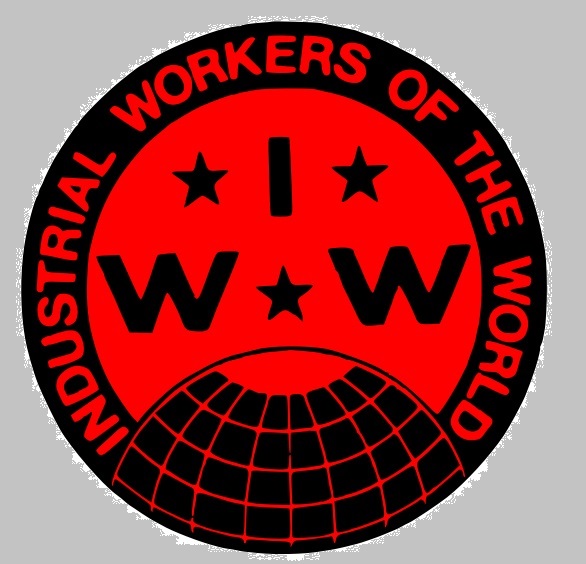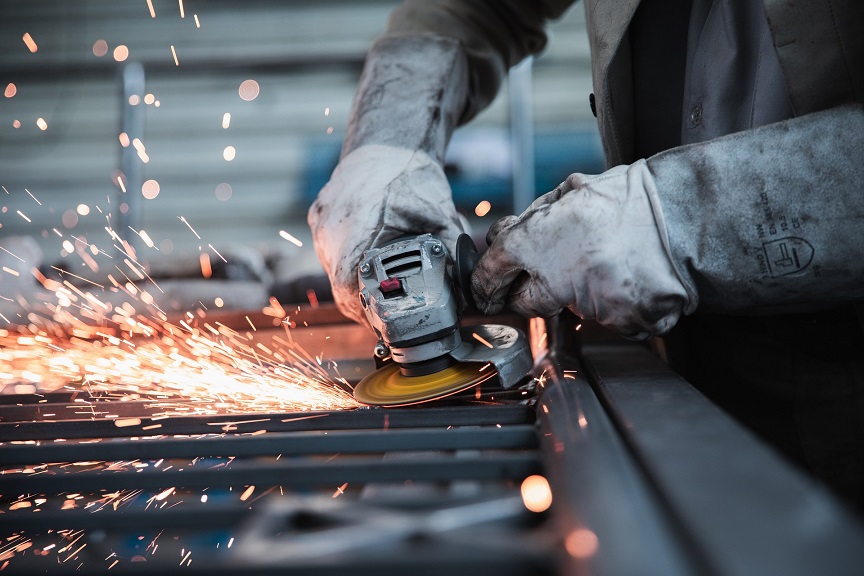 The IWW is one of the oldest unions in the world – and it’s urging collectivity and solidarity in this moment of crisis. #Justice4Workers.
The IWW is one of the oldest unions in the world – and it’s urging collectivity and solidarity in this moment of crisis. #Justice4Workers.

The Industrial Workers of the World (IWW) is one of the oldest trade unions in the world, founded in 1905 in Chicago. Their branches span the globe. They explain:
“We’re an active and fighting union. We know solidarity is strength, and we prove it by looking after each other. We provide advice and representation when you have problems at work, but we’re much more than that.We’re not here to provide a service; we’re here to build a movement, winning bigger and better victories for working people as our movement grows in strength and confidence.”
Andy Hiles, Branch Secretary for the Sheffield arm of the IWW, spoke to Now Then about re-energising the union’s work in the local area.
Trade unions across sectors stepped up strike action last year, and this is continuing well into 2023. During our chat, Andy detailed his own background that brought him into union activism at an early age. “I cut my political teeth in the miners strike in ‘84 and ‘85 as a 16 year old. That struggle is obviously quite deep rooted in not just the IWW in Sheffield, but in all working class communities really.”
Of course, the miners strikes have a rich history in Sheffield, as do trade unions. Andy tells me that unions are central to his political development. “It’s absolutely central to mine, because I had a step-granddad that worked at Woolley pits,” he says. “And when he was a 34-year-old union rep, long before I was born, he was the rep that signed Arthur Scargill up to the union.
“Woolley Colliery, is, of course, Arthur’s original pit that he went to at 16 when he left school, so having Arthur as a visitor to the house on a Sunday afternoon quite regularly does shape your views of trade unionism.”
 Appetite for action
Appetite for action
Andy has seen more of an appetite for union action on the streets of Sheffield recently.
“It’s more and more positive by the month, or by each individual action. We’re handing out leaflets about our union work and cost of living crisis and people just wish us the best of luck. Some people had heard of us, because of the history. The usual response is, ‘Oh, IWW? We didn’t know you were still a union.’
“So that’s always good, because you get into conversations. And it’s just going from strength to strength. The eagerness of people who would, even a couple of years ago, have passed on the discussion – now they want to take a leaflet.”
As support grows and unions become more indispensable, the question of politics rears its head. Unions are historically considered to be left-wing, but certain events can demonstrate a more centrist stance. The Queen’s death, for example, saw several unions cancel their strikes in respect to the dead monarch’s memory. Andy sees things rather differently.
“I was very vocal in the time immediately after the Queen’s death in calling for the abolition of the crown. I still am. We’re a union that doesn’t believe in monarchy. We’re a union that wants power to be devolved to work, not to come from a monarchy from above.”
Andy’s stance demonstrates exactly how the IWW differs from other unions – it places its politics at the centre of its work, and locates its struggle as a union firmly amongst the fight to dismantle structures of power.
Co-operatives and getting rid of bosses
Challenging power in the workplace often sees organisations turn to co-operative structures for a more horizontal approach to work. “There’s a good argument for co-operative working and not having a top-down approach with bosses,” Andy explains. “And no other union wants that because otherwise, what’s the point in them?
 “We’re here as a union to negotiate if there are problems in the co-op, to listen and mediate. But we’re not going to be taking a side because everybody’s a member, whereas the big unions want to advocate for a strike if management won’t give you a pay rise.”
“We’re here as a union to negotiate if there are problems in the co-op, to listen and mediate. But we’re not going to be taking a side because everybody’s a member, whereas the big unions want to advocate for a strike if management won’t give you a pay rise.”
Andy sees confrontation as a model which keeps bosses in power and workers fighting for scraps. He explains his thinking through an example of the many types of union members present in a hospital.
“In the healthcare union there are different unions for different sectors – the ambulance drivers, paramedics, cleaners, nurses, they’ve all got their own separate interests. But they all work in the health sector. You have to organise everybody in the health sector into one big union, which is one of IWW’s mottos: One Big Union.
“Whether you’re cleaning the wards, washing the floors, or you’re a junior doctor, or a paramedic, or a nurse, you should be in that one big union, a healthcare union, fighting for better pay and conditions, and also building to be able to take over the NHS and kick out the bosses.”
Instead, Andy explains, professions within a sector are split across different unions, and ultimately that favours those in power.
“Janitors are supposed to be in Unite, and nurses in RCN, junior doctors are in their own union, and everybody’s got their own little interests. And that’s where the government just comes in and picks you off and sets nurses against ambulance drivers, and so on. Literally, we are all in it together in terms of working conditions. But we’re not all in it together practically, because there’s the ruling class and the working class.”
 Anti-strike laws
Anti-strike laws
A good example of the divide and rule tactics used by the government to crush strikes is the latest anti-strike legislation. These laws could require workers in certain professions to continue to provide minimum levels of service, even when a strike has been called. Andy saying that it’s a problem when “the law becomes so repressive that people have no freedoms to withdraw their labour.”
For him, one particular incident underlines the lack of solidarity across sectors engineered by the government. “Unison was advising its members to cross an RCN picket line. It’s shocking and appalling. I mean, how are we going to win?”
The IWW’s concept of ‘One Big Union’ certainly tackles the problem of how to combat institutional attempts to break up strikes. In a broader sense, though, it also speaks to what many feel is a broken political system. Andy is critical of the Labour Party for no longer representing the labour movement.
“We have huge amounts of work to do. I think the IWW over the years has slipped. It almost disappeared. It has, in the last 20 years, reemerged and grown. It’s certainly reemerged and grown since the financial crisis.
“I remember Thatcher saying we’re all going to be a home-owning, shareholder holder, car-owning democracy. We are certainly not a shareholding democracy – we’re all working longer and harder, and I think the lies are running out now.”
As the Conservatives and Labour continue to routinely abandon working people of all marginalisations, it’s becoming more and more apparent that union activism and collectivity is a far better option.
Those of us abandoned by a broken political system would do well to turn our energies and affections towards unions and, beyond that, to re-make unions into tools of collectivity committed to dismantling power, rather than showing deference to it.
(Article originally published in Now Then Magazine)












.jpg)












